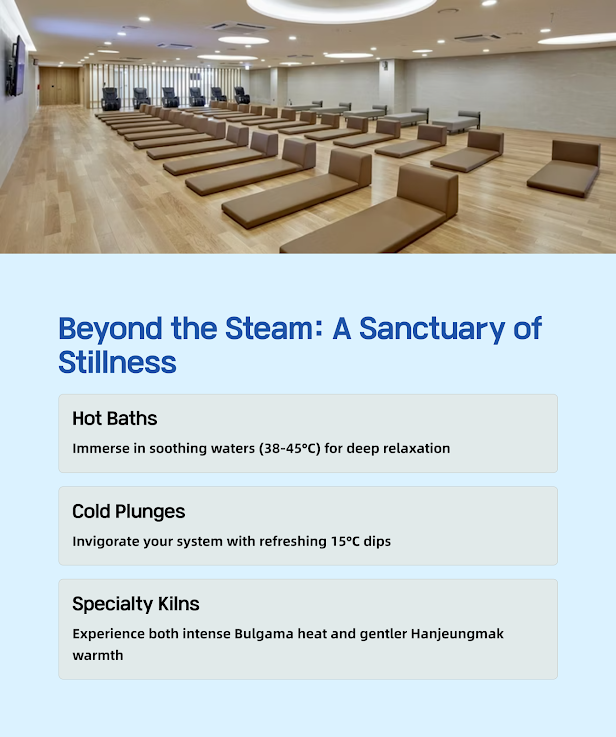My First Time - A Curious Entry into Korean Bathhouse Culture
As a Korean-American raised in the U.S.,
my first jjimjilbang visit was half curiosity, half culture shock.
Tiled walls, naked strangers, heated rooms—
it was far from anything I’d known.
But it was also the first place
where I felt my body exhale in years.
More Than a Sauna - A Place to Be Still
In Korea, a jjimjilbang isn’t just about sweating.
It’s about stopping.
No phones, no noise, no urgency—
just warmth, stillness, and time to breathe.
In a world that never slows down,
this stillness felt radical.
And necessary.
Communal Healing - Strangers, Silence, and Shared Space
You don’t speak.
You don’t need to.
In the jjimjilbang, healing happens quietly—
in the shared hum of heat,
in the comfort of others resting nearby.
There’s something profoundly human
about lying beside strangers and finding peace.
The Power of Simplicity - Eggs, Mats, and Warm Floors
Boiled eggs. Sweet rice drinks. Hard mats on heated floors.
Nothing is fancy, but everything is intentional.
It reminded me that healing doesn’t require perfection—
just presence.
The smell of roasted salt and the crunch of a sauna suit
became anchors in a world that often felt too loud.
Letting Go - Shedding Stress with Every Drop of Sweat
I’ve carried weight—mental, physical, emotional.
Military life teaches you to hold it all together.
But here, in this place of quiet fire,
I could finally let it melt away.
With every bead of sweat,
I felt layers of tension disappear
without a single word spoken.
A Veteran’s Perspective - Discipline Replaced with Stillness
In the Army, healing meant pushing through.
At the jjimjilbang, healing meant surrendering.
No drills, no goals—just being.
This contrast taught me a new kind of strength:
the ability to rest, to trust, to be human again.
Why I Keep Returning - Jjimjilbang as Cultural and Personal Therapy
I return not just for the warmth,
but for what it awakens in me.
My Korean roots, my need for peace,
and the reminder that silence heals more than words ever can.
Jjimjilbangs aren’t just part of Korean culture.
They’re a part of my journey back to wholeness.







